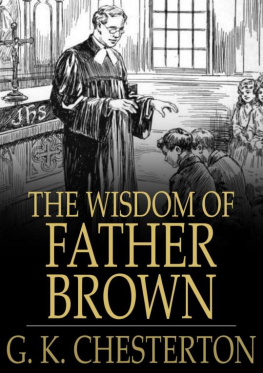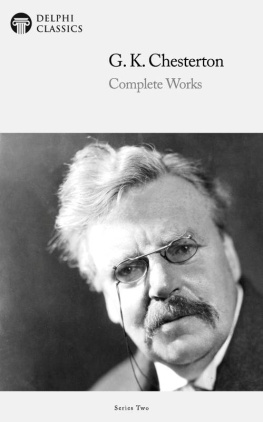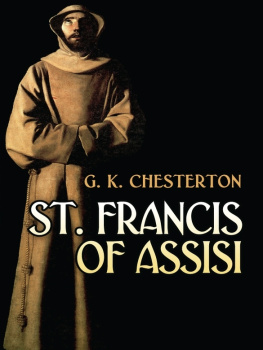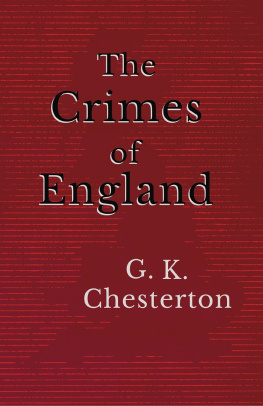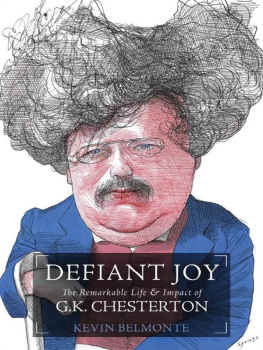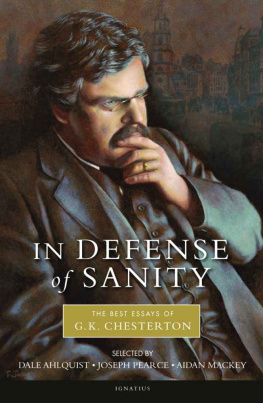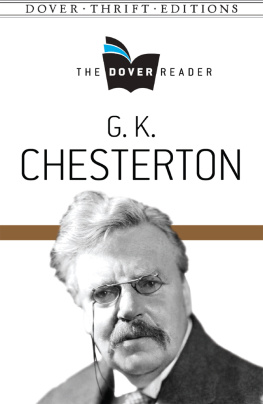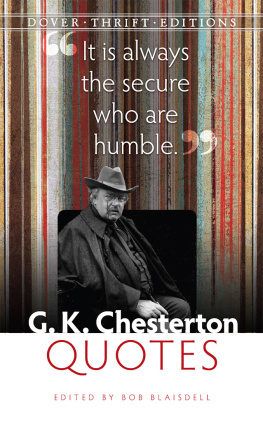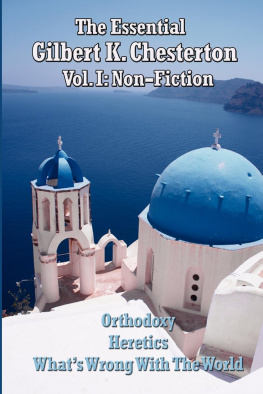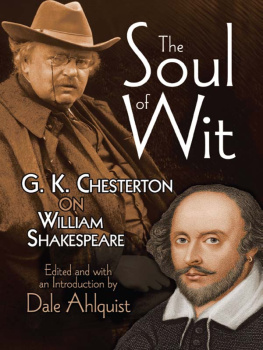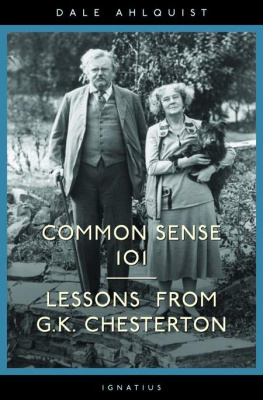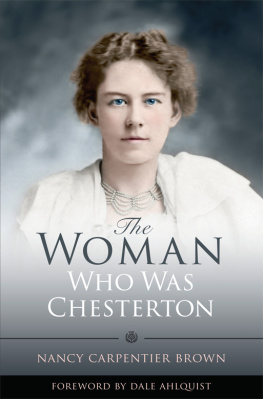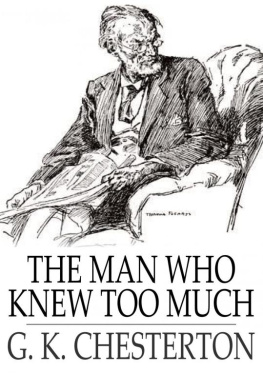G. K. Chesterton - The G. K. Chesterton Collection [50 Books]
Here you can read online G. K. Chesterton - The G. K. Chesterton Collection [50 Books] full text of the book (entire story) in english for free. Download pdf and epub, get meaning, cover and reviews about this ebook. year: 2012, publisher: Catholic Way Publishing, genre: Science. Description of the work, (preface) as well as reviews are available. Best literature library LitArk.com created for fans of good reading and offers a wide selection of genres:
Romance novel
Science fiction
Adventure
Detective
Science
History
Home and family
Prose
Art
Politics
Computer
Non-fiction
Religion
Business
Children
Humor
Choose a favorite category and find really read worthwhile books. Enjoy immersion in the world of imagination, feel the emotions of the characters or learn something new for yourself, make an fascinating discovery.

- Book:The G. K. Chesterton Collection [50 Books]
- Author:
- Publisher:Catholic Way Publishing
- Genre:
- Year:2012
- Rating:3 / 5
- Favourites:Add to favourites
- Your mark:
The G. K. Chesterton Collection [50 Books]: summary, description and annotation
We offer to read an annotation, description, summary or preface (depends on what the author of the book "The G. K. Chesterton Collection [50 Books]" wrote himself). If you haven't found the necessary information about the book — write in the comments, we will try to find it.
G. K. CHESTERTON
50 Books in One: 22 Non-Fiction, 11 Fiction, 8 Biographies, 4 Poetry, 1 Play, 3 Critiques, 1 Introduction
Over2.3 Million Words in one E-Book
Includes an Introduction to Gilbert Keith Chesterton
Includes an Active Index to all books and 50 Table of Contents for each book
Includes Illustrations by Claude Monet
Gilbert Keith Chesterton (18741936) was an English writer. He wrote on philosophy, ontology, poetry, plays, journalism, public lectures and debates, literary and art criticism, biography, Christian apologetics, and fiction, including fantasy and detective fiction. Chesterton is often referred to as the prince of paradox. Whenever possible, Chesterton made his points with popular sayings, proverbs, and allegoriesfirst carefully turning them inside out.
Chesterton is well known for his reasoned apologetics and even some of those who disagree with him have recognized the universal appeal of such works as Orthodoxy and The Everlasting Man. Chesterton, as a political thinker, cast aspersions on both progressivism and conservatism, saying, The whole modern world has divided itself into Conservatives and Progressives. The business of Progressives is to go on making mistakes. The business of the Conservatives is to prevent the mistakes from being corrected. Chesterton routinely referred to himself as an orthodox Christian, and came to identify such a position more and more with Catholicism, eventually converting to Roman Catholicism from High Church Anglicanism. George Bernard Shaw, Chestertons friendly enemy said of him, He was a man of colossal genius.
INCLUDED BOOKS:
GILBERT KEITH CHESTERTON
NON-FICTION
HERETICS
ORTHODOXY
WHATS WRONG WITH THE WORLD
WHAT I SAW IN AMERICA
THE NEW JERUSALEM
IRISH IMPRESSIONS
A SHORT HISTORY OF ENGLAND
EUGENICS AND OTHER EVILS
THE SUPERSTITION OF DIVORCE
THE APPETITE OF TYRANNY
THE CRIMES OF ENGLAND
THE BLATCHFORD CONTROVERSIES
THE VICTORIAN AGE IN LITERATURE
A MISCELLANY OF MEN
ALARMS AND DISCURSIONS
ALL THINGS CONSIDERED
THE DEFENDANT
TREMENDOUS TRIFLES
UTOPIA OF USURERS AND OTHER ESSAYS
THE USES OF DIVERSITY
ESSAYS BY CHESTERTON
A CHESTERTON CALENDAR
FICTION
THE INNOCENCE OF FATHER BROWN
THE WISDOM OF FATHER BROWN
THE MAN WHO WAS THURSDAY
THE MAN WHO KNEW TOO MUCH
THE NAPOLEON OF NOTTING HILL
THE FLYING INN
MANALIVE
THE BALL AND THE CROSS
THE CLUB OF QUEER TRADES
THE TREES OF PRIDE
OTHER STORIES
BIOGRAPHY
VARIED TYPES
CHARLES DICKENS
APPRECIATIONS AND CRITICISMS OF THE WORKS OF CHARLES DICKENS
GEORGE BERNARD SHAW
ROBERT BROWNING
WILLIAM BLAKE
G.F. WATTS
BIOGRAPHIES BY CHESTERTON
POETRY
THE BALLAD OF THE WHITE HORSE
THE BALLAD OF SAINT BARBARA
THE WILD KNIGHT AND OTHER POEMS
GREYBEARDS AT PLAY
PLAYS
MAGIC
CRITIQUES
GILBERT KEITH CHESTERTON by Cecil Chesterton
GILBERT KEITH CHESTERTON by Patrick Braybrooke
OTHER G. K. CHESTERTON CRITIQUES
PUBLISHER: CATHOLIC WAY PUBLISHING
G. K. Chesterton: author's other books
Who wrote The G. K. Chesterton Collection [50 Books]? Find out the surname, the name of the author of the book and a list of all author's works by series.

